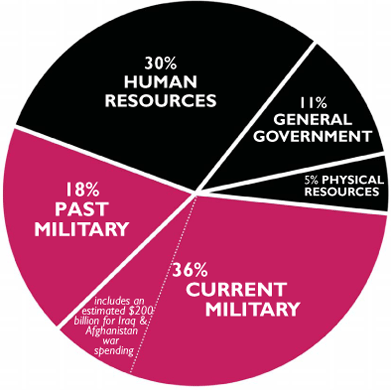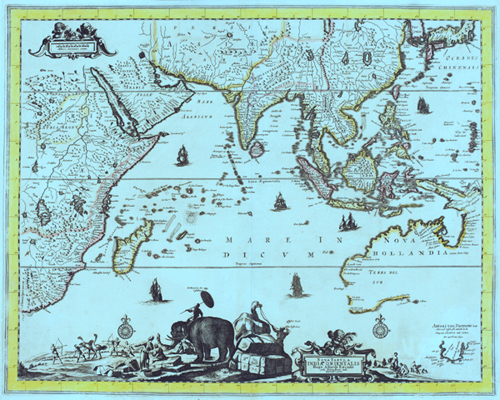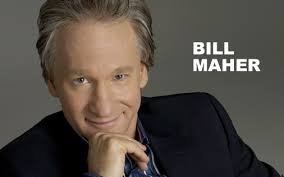
Total Outlays (Federal Funds): $2,650
billion
MILITARY: 54% and $1,449 billion NON-MILITARY: 46% and $1,210 billion

Does Decriminalization Lead to Chaos? Not in Portugal.
 Last Friday I had the opportunity to meet Glenn Greenwald, the best-selling author and Salon contributor who was presenting his report – funded by the Cato Institute – on Portugal’s experience decriminalizing personal possession of drugs over the past eight years.
Last Friday I had the opportunity to meet Glenn Greenwald, the best-selling author and Salon contributor who was presenting his report – funded by the Cato Institute – on Portugal’s experience decriminalizing personal possession of drugs over the past eight years.
Few, even in the drug policy world, have paid much attention to Portugal’s remarkable but sensible 2001 decision to remove drug use and possession from the criminal realm and address it solely as a public health issue.
The details of Portugal’s system are worth checking out, but basically Portugal, after careful, empirical study, concluded that criminalizing drug use was creating two barriers to introducing treatment to those who might need it. First, it diverted funds that ought to go to drug treatment to ineffective law enforcement efforts. Second, the threat of arrest naturally caused those who might seek treatment to avoid, rather than seek out help from government institutions.
Under the current system, those caught possessing a personal amount of drugs, including marijuana, are cited by police and required to appear before a three-person panel made up of legal and healthcare professionals within 72 hours. The panel then conducts an informal interview with the person to determine what, if any, treatment might be necessary.
Greenwald was careful to note that the policy change was not an ideological decision, nor was it seen by Portuguese officials as some sort of social experiment. Rather, it was viewed as a necessary fix to alarming increases in drug abuse in the late ’90s.
The result, according to Greenwald’s analysis of the data and countless interviews with Portuguese officials, law enforcement and clients, has been a hands-down success. Despite some initial fears, drug use and drug-related crime have not increased. In many important categories and demographics, 15- to 19-year-olds for example, drug use rates have actually decreased.
And, nearly eight years later, there’s little enthusiasm at all, even among conservatives and law enforcement leadership, to go back to criminalizing personal drug use and possession.
Greenwald argues that there’s no reason to think that there’s anything about the conservative, largely Catholic country that would make its success with decriminalization unique. He also suggested that, in general, empirical evidence supporting reform might be far more persuasive for advocates than ideological arguments about personal freedom or limiting government intrusion in adults’ private lives.









+copy.jpg)






















































.jpg)



























 G
G







.jpg)
















No comments:
Post a Comment